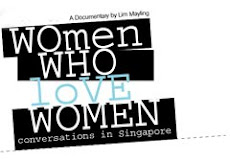GAY DEBATE CRYING OUT FOR THE MAJORITY VOICE
Moderate views of most S’poreans needed to temper the vocal minority
DERRICK A PAULO
ASSISTANT NEWS EDITOR
derrick@mediacorp.com.sg
NOW the Penal Code has been updated — with Section 377A left untouched — where does Singapore go from here on this issue of the law on sex between gay men? Certainly, it will remain an issue for years to come, and the situation here will evolve, if not in tandem with the rest of the world, then one step behind the frontline of change, as Prime Minister Lee Hsien Loong said last week in Parliament.
But how to evolve when two sides hold intractable positions? Those who have supported or opposed Section 377A have done so with great zeal and belief, which is unlikely to dim over time. Here is where and why this issue should not be debated, dominated and decided solely by a vocal minority on either side.
As Mr Lee pointed out, for the majority of Singaporeans, the issue is not at the top of their consciousness. For them, the attitude is live and let live. When the time comes for another opportunity to relook Section 377A, chances are this moderate attitude of the majority, as majority attitudes tend to be, will remain the prevalent view.
So, why not take ownership of an issue so that the debate and any decision better reflects the kind of society we are or want to be?
Of course, society will not be defined by one single issue, although that is precisely the scenario that lobby groups in the United States try to paint, as pointed out last week by Senior Minister of State Dr Balaji Sadasivan.
In Singapore, whether society disintegrates because of the change in a single law or whether a wave of all things immoral becomes an inexorable tide is surely in the hands of the majority. Likewise, whether Singapore is seen as an unjust place will be determined by the entire spectrum of laws and not by one law, as well as how those laws are enforced.
For the gay community, naturally, Section 377A is the law that probably counts more than others, even though the Government has said it will not proactively enforce this law.
The reason is simple enough, and it has to do with the politics of identity.
Gays may not be considered a minority by the State in the way non-Chinese ethnic groups are considered minorities in Singapore but gays are equally citizens, and as Mr Lee said, they are kith and kin. But gays feel they are citizens who are, by definition, immediate criminals. It is true the law does not criminalise gays, but gay sex. However, if we accept that it is only human to seek a loving relationship, which includes intimacy and sex, then clearly Section 377A impacts the identity of a gay person as a Singapore citizen.
But while this is the reality of Section 377A, the reality is also that abolishing it is not enough for the gays. Identity also comes with full acceptance by other Singaporeans, which is what the gay community wants. On the other side of the fence, those who fervently support Section 377A, most of whom are from religious groups, are also looking for affirmation. Through public policy, they are looking for affirmation of their views, which by extension would be an affirmation of the relevance of their respective religions in the direction the country takes. To them, keeping or abolishing Section 377A would reflect this relevance.
These issues are at the crux of the debate, but have been given short shrift so far. The majority has to decide what sort of affirmation gays ought to get as Singapore citizens and what weight religion should have in Singapore’s governance and the policies it should bear upon. Most importantly, the majority should decide the tenor of the debate on Section 377A. Whether the majority agrees or disagrees on the repealing of the law, as the debate continues, the majority should take ownership of how it is conducted and, at the very least, take a stand against remarks deriding groups on either side.
Singapore has prided itself on its social harmony and the cohesion it has built. Heated though this issue has been, it has not descended to the level seen in the US, where lives have been ruined and lost because of differences on this issue.
However, we are beginning to see in Singapore instances of parties from both sides having their employment questioned, as TODAY reported last week. This ought to be nipped in the bud. When inflammatory remarks creep into the debate, whether in the highest platform such as Parliament or the coffeeshop, the majority must begin to drown them out. This should be how Singapore differentiates itself from the rest of the world, even if we remain one step behind the frontline of change.






0 comments:
Post a Comment